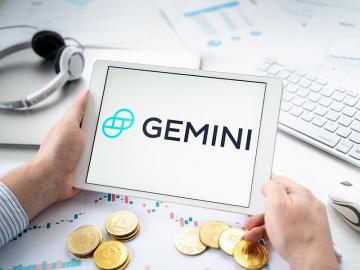Innovation has a direct impact on the country's well-being: Sanjay Jain
Entire nations can progress, raising their citizens' access to health, education and employment, with the power of innovation, writes the partner at Bharat Fund
Innovation in the economy leads to the creation of better goods and services that improve lives, and drives progress and economic growth
Illustration: Chaitanya Dinesh Surpur
Innovation and its impact on development have been topics of discussion for some time. A 2021 report by UNCTAD showed that while there was little difference in GDP per capita across the world in the 1700s, the industrial revolution and subsequent waves of innovation led to the West’s dominance.Every wave of progress increased the inequality between countries with unequal access to basic necessities such as infrastructure, education, health, electrification and telecommunications. Some countries managed to catch up by adopting new technologies, but many remained behind.
While I am not equipped to separate the effects of colonialism, wars and other events, it is clear to me that innovation creates a positive impact on a country’s ability to grow. Innovation in the economy leads to the creation of better goods and services that improve lives, and drives progress and economic growth. It helps businesses stay competitive, meet changing consumer needs, and generate new jobs. Furthermore, innovations in fields such as health care and technology can address important global challenges, such as disease and environmental sustainability. And companies and countries that innovate are more efficient and better equipped to adapt to changes in the market.
Startups, being at the forefront of innovation, play a crucial role in the economy. The impact of innovation on the economy is evident when we look at some of the most innovative companies of the last 30 years, such as Apple, Microsoft, Google (Alphabet), Amazon, Tesla or Facebook (Meta). These companies started small and have built great value for themselves and the economy around them. Through a process of disciplined experimentation, startups are able to take calibrated risks, test their products, get feedback and iterate. As a result, they innovate faster than established businesses, overtake competition and gain a foothold in the market.
In India, the startup ecosystem has grown and matured over the years. There are now over 11,000 companies that have received over $150 billion of funding, including $23 billion in the last 12 months. The vibrant ecosystem has helped entrepreneurs with resources.
The world around us is changing rapidly, and so is India. We now have 1.3 billion people with a digital identity. In the last decade, we brought bank account access from 17 percent to over 80 percent of the population. This resulted in increased formalisation.
This was followed by a payment system, which in six years has become one of the world’s largest, processing over $1.5 trillion of value over 74 billion transactions in 2022 alone. These metrics are the result of a vibrant financial and fintech ecosystem, which have been innovating to create value for the users.
Also read: How valuable companies are driving change with innovative approach
One of the key differentiators of the India digitisation story has been the creation of digital public goods, such as digital identity, payments and documents, which enable a seamless flow of people, money, and data, while ensuring the individual remains in control of their own data. Collectively referred to as the IndiaStack, these are a set of open APIs and digital public goods that aim to unlock the economic primitives of identity, data, payments and more at the population scale. These include Aadhaar, UPI, DigiLocker, Fastag with many other stacks, including ONDC for open ecommerce, a National Digital Health stack, National Digital Education Architecture and a credit stack OCEN. These public goods form a set of rails around which the next few layers of the innovation economy are being built.
In addition to the digital startup ecosystem, India is also home to a growing deep tech ecosystem. At the Bharat Innovation Fund, we are fortunate to work with some of the entrepreneurs who are building differentiated products in fields ranging from augmented reality, cybersecurity, cancer drug discovery, materials science, health care and others. We are quite excited to note that much of the talent for these efforts is homegrown in our universities and labs. These developments are leading us into a virtuous cycle that will rapidly boost the country’s GDP.
These developments did not happen accidentally. Over the past few decades, Indian universities have produced a large number of technology graduates—more than anywhere else in the world. This has helped India become the place where a lot of the world’s software technology was developed—in the form of services and also core technology and product. This has created a critical mass of high quality, trained talent that is continuing to deliver for India and the world.
This same ecosystem has also helped us see a lot of activity in advanced software, and artificial intelligence—which is where we see a lot of activity today. Many application companies are building tools to manage data (and bias in data), innovating new models based on Indian data sets, and more. We also have efforts like the Bhashini, which is creating a national platform for language translation in India as a Digital Public Good.
Also read: QNu Labs: Solving complex problems with quantum computing
Hardware-led technology solutions have also started being developed from India. Isro has led the way by making cutting-edge space-related technologies at much lower price points, proving that resource-constrained nations with human potential can deliver high quality globally competitive innovations. Bellatrix, developing green propellants, Agnikul with their 3D-printed modular rocket engines, several advanced robotics companies and Detect Technologies operating in the area of industrial AI and machine vision are shining examples of such solutions developed in India.Finally, there is the category of deep science startups—these are typically longer gestation innovations. This category involves new drug molecules, novel materials, innovative batteries, novel processes, quantum computers etc. Several efforts are underway via university incubators, government initiatives and department of biotechnology grants to foster this ecosystem.
With a combination of talent, opportunity, capital, policy and a support ecosystem, we should start to see the growth in innovation-led business in India, and feel the benefits in our everyday lives, and in the economic prosperity that will follow.
Check out our Festive offers upto Rs.1000/- off website prices on subscriptions + Gift card worth Rs 500/- from Eatbetterco.com. Click here to know more.
(This story appears in the 24 February, 2023 issue of Forbes India. To visit our Archives, click here.)














